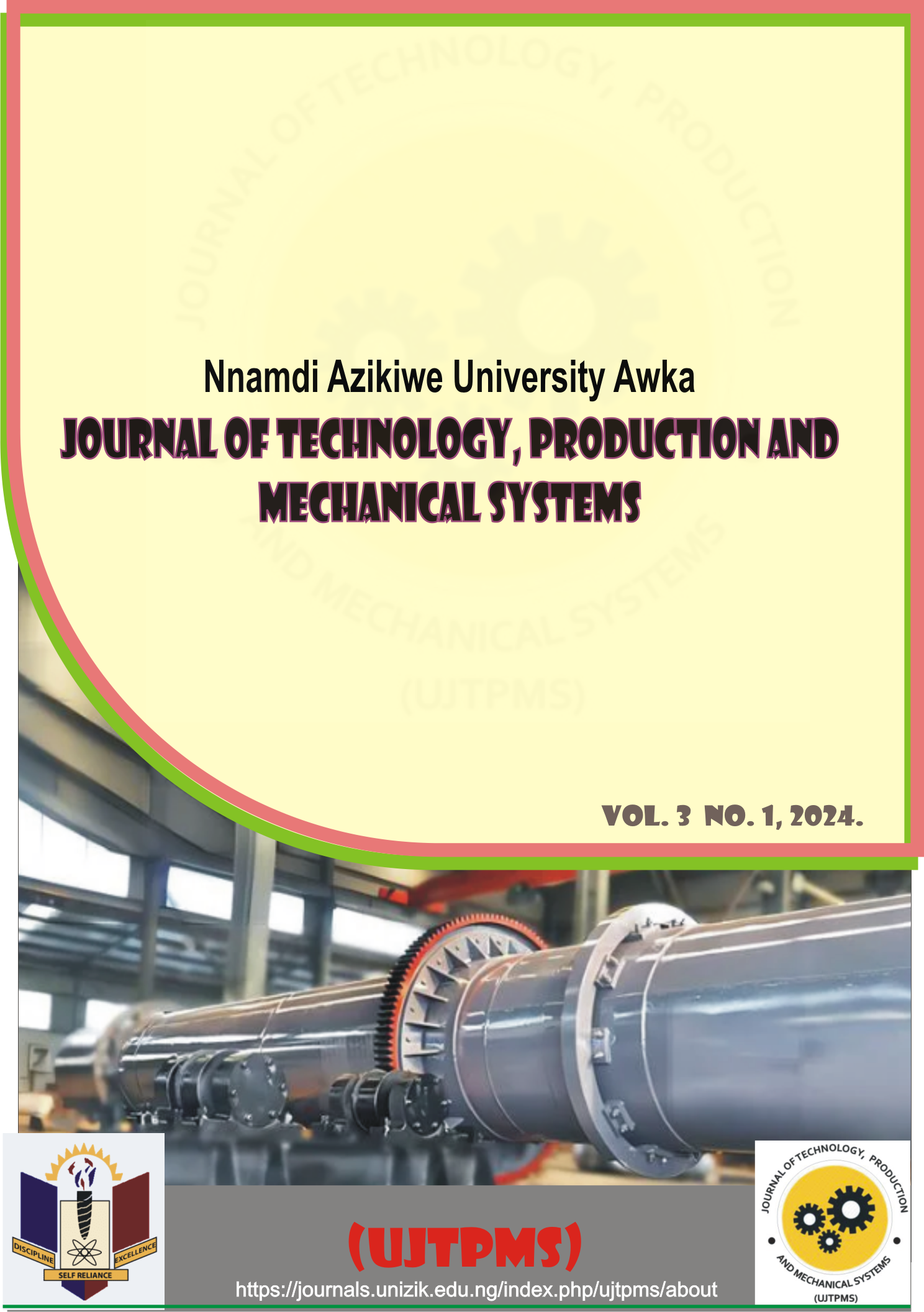Effects of nanoparticles volume fractions on the viscosity of nanofluids prepared from palm kernel shell nanoparticles
Keywords:
Nanofluids, Viscosity, Palm Kernel Shell, nanoparticlesAbstract
In this research, palm kernel shell nanoparticles were produced for nanofluid application and the viscosity of the produced nanofluids was measured. The size of the nanoparticles fabricated is 100nm diameter. This paper presents results on the synthesis of palm kernel shell bio-material to obtain nanoparticles and subsequently produced nanofluids. Nanofluids were prepared using two-step method by dispersing or pouring palm kernel shell- nanoparticles into the base fluid (a binary mixture of Ethylene Glycol (EG) and deionised water (base fluid) in a ratio of 50:50) .An ultrasonic sonicator was used to ensure proper mixtures of different volume fractions (0.3%, 0.6 %, 0.9 % 1.2 % and 1.5%) of palm kernel shell nanoparticles into base fluid (a binary mixture of Ethylene Glycol (EG) and deionised water). A Vibro Viscometer machine (SV-10) was used to measure the viscosity of the prepared nanofluids more easily. For minimum and maximum volume fractions of palm kernel shell nanoparticles (0.3% and 1.5%) in the base fluid, the viscosity was found to be 26 mPa.s and 43 mPa.s, which increases slightly with an increase of particle volume fraction and decreases as the temperature increases. The experimental results show a maximum of 23% increasing of viscosity for 1.5% volume fraction of nanofluids as compared with the base fluid. From the experimental study on prepared nanofluids conducted, results show that all the values of viscosities at different volume fractions of the prepared nanofluids were found to be higher than the values of the base fluids (a binary mixture of Ethylene Glycol (EG) and deionised water). The experiments were conducted at varying temperature range (300C through 700C).
Downloads
Published
Issue
Section
License
Copyright (c) 2024 Unizik Journal of Technology, Production and Mechanical Systems

This work is licensed under a Creative Commons Attribution-NonCommercial 4.0 International License.






